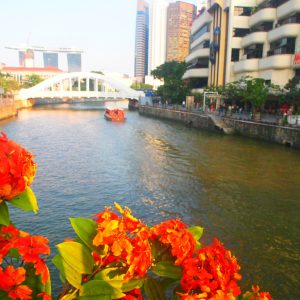Ecology, Nature and the Human in Edwin Thumboo’s Poetry
October 20, 2020

The International Day of Climate Action was first organised on the 24th of October 2009 by 350.org, a global climate movement. More specifically, it was first organised around the scientific data point of 350 parts per million, the safe concentration of carbon dioxide in the atmosphere.
In the discourse of climate action, poetry is unlikely to be the first thing that comes to mind. However, Associate Professor Chitra Sankaran (NUS Department of English Language and Literature), in “Ecology, Nature and the Human in Edwin Thumboo’s Poetry” (Asiatic, 2013), delves into the field of eco-criticism through an interrogation of the ecological in Emeritus Professor Edwin Thumboo’s (NUS Department of English Language and Literature) poetry.
A/P Sankaran explains the relationship between the literary and the ecological as rooted in the deep interconnections between culture and nature, with literature both affecting and affected by nature. She attempts to make a case for Prof Thumboo as an ecological poet, believing his poetry to echo this fundamental eco-critical premise, demonstrating its own eco-critical leanings and concerns in the Singapore context. This comes in contrast to much of the scholarship surrounding Prof Thumboo’s poetry, which has largely concentrated on an understanding of his poems as progress-oriented and nationalistic.
The consonance that A/P Sankaran finds in Prof Thumboo’s poetry occurs between the human and natural world; often, it is used in his poetry as a critique of Singapore’s rapid urbanisation and development in the 1960s-80s. While the article acknowledges the fact that a text may have no direct relationship with the world, it shows through Prof Thumboo’s poetry that the literary can successfully envision the notion of action, agency, and participation in an on-going interaction between man and the environment.
Concluding, A/P Sankaran summarises Prof Thumboo’s welding of humankind and nature as a challenge to humanism and the primacy of the autonomous individual in lyrical poetry. In doing so, these poems encourage the reader’s encounter with the text, to have them be freshly transformed by the meeting of the human and an eco-centric landscape.
Read the full article here.
